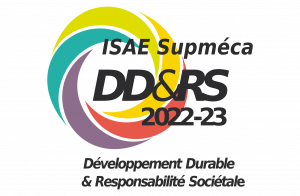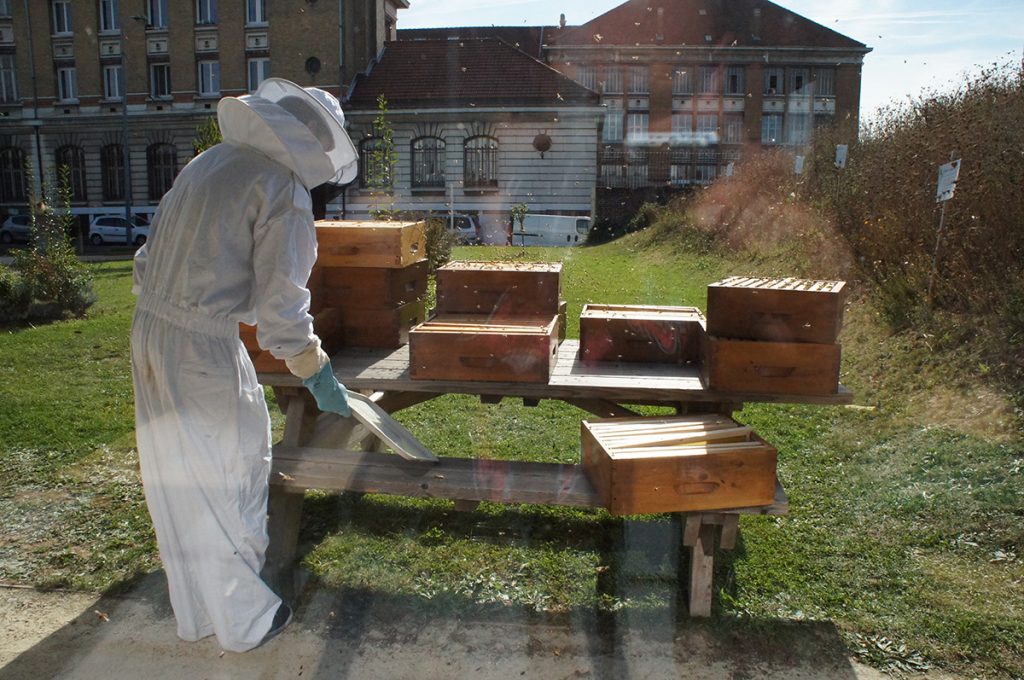This process was conducted progressively by implementing the framework, means and organisation requirements that enable ISAE-Supméca’s Agenda 21 action plan to be carried out. In 2013, ISAE-Supméca published its first sustainable development report that highlighted how the principles of openness and social responsibility had been implemented in all of the institute’s training and research projects.
ISAE-Supméca’s efforts were rewarded in December 2016 with the DD&RS label – a label for sustainable development and social responsibility. This translates the School’s commitment to carrying out this approach in the long-term. ISAE-Supméca will be audited again for this label in four years. In order to succeed in keeping the label, a sustainable development and social responsibility strategy has been implemented for the coming years.

Below are the 5 areas of strategic focus for the DD&RS approach, and what each area implies for ISAE-Supméca in terms of further developments:
Strategy and Governance
- Develop the commitment of all management offices and services to the DD&RS approach, in a durable and agile manner.
- Inform learners and staff members about, and engage them in the approaches that are of interest for both the Institute and its role players;
- Formalise ISAE-Supméca’s DD&RS policy and the related actions around two goals: controlled communication and continuous-improvement approach, with objectives that are evaluated and confirmed or rejected by a guidance committee.
Training
- Train and prepare engineering students to the stakes, issues and business requirements of the future, with an emphasis on the approaches and opportunities offered by DD&RS;
- Further progressively integrate DD&RS as an approach, together with its related knowledge and skills, into all the course units, projects and internships offered in the curriculum.
Research
- Develop research themes, projects and partnerships that are DD&RS specific;
- Formalise and integrate the DD&RS approach into the practices of the research teams.

Environmental Management
- Further reduce the ecological footprint of the campus and further develop biodiversity;
- Develop the campus into a centre for student life, sharing, learning and innovation, which is open to its surrounding environment.
- Social policy and regional rooting
- Create and develop the opportunities offered by the areas (local, regional, national and international) the Institute is involved in;
- Further carry out the processes aimed at improving the well-being and working conditions of both learners and staff members;
- Develop an inclusive policy towards learners, staff members and service providers.










